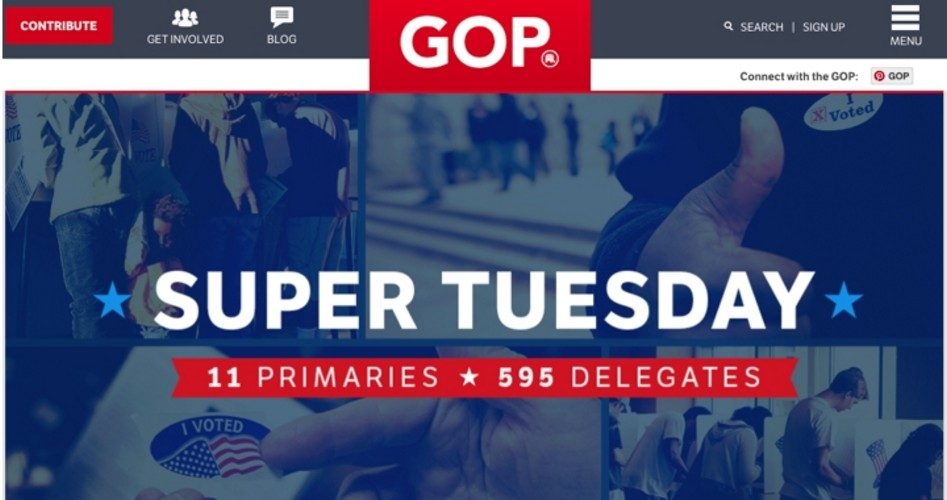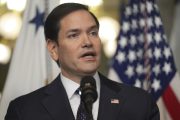
Heading into Super Tuesday, Donald Trump has 164 delegates, while in distant second and third places Ted Cruz and Marco Rubio have just 34 and 32 delegates respectively. With Trump leading in polls in 12 of the 13 states holding either primaries or caucuses on Tuesday, the majority of the 664 delegates there could be added to Trump’s total, making him nearly unbeatable in his run for the GOP presidential nomination.
The problem is that Trump could win a majority of the delegates from here on out but still not have enough — 1,237 — to win on the first vote at the GOP national convention in Cleveland in July. A further problem for Trump is the 437 “unpledged” delegates who are party “regulars” consisting of the 168 members of the Republican National Committee (RNC) and 269 current and former Republican office-holders. Unless Trump makes a massive (some say heroic) effort to draw them into his camp, he just might win most of the popular vote and still lose the nomination.
This is keeping the RNC up nights, as they are trying to save the Republican Party from Trump without blowing it up in the process.
There hasn’t been a brokered convention — where no candidate has garnered the majority of the delegates before the nominating convention — since 1952, when Illinois Governor Adlai Stevenson won the Democrat Party nomination but lost the general election. The same thing happened four years earlier, when Republican Governor Thomas Dewey won the nomination but also lost the general election to Harry Truman.
There are numerous advantages to the RNC to have the matter settled long before July. The convention, instead of being contentious, would turn into a love-fest, with everyone coming together, forgetting the acid-throwing attacks and making nice and preparing for the battle with Clinton or Sanders.
However, this year could be different, and the RNC is faced with choices, the first being to let Trump run the table, get behind him in Cleveland, and go on the offensive against Clinton. Or the RNC and its funders could persuade either Cruz or Rubio to withdraw from the race, thus freeing up their delegates and those they might have won, to the other second-place finisher. This would make the race one-on-one, increasing the chances that a stronger second place finisher could take the nomination away from Trump in Cleveland.
Or, third, support both second-place finishers, hoping to deprive Trump of the necessary majority he needs in July, throwing the convention open for the first time in decades.
It nearly happened in 1968 when the Democrat Party appeared headed to a brokered convention until Robert F. Kennedy was assassinated. In 1976, Gerald Ford was leading Ronald Reagan in delegates but a brokered convention was avoided at the last minute with a first-vote victory for Ford.
In 1980, Ted Kennedy, running behind Jimmy Carter, put up a last-minute fight for delegates but lost on the first vote. In 1984, Walter Mondale was the clear frontrunner but was still 40 delegates short of obtaining the nomination when the first ballot was cast. However, a brokered convention was avoided when Mondale won on the first ballot anyway.
In 1998, a brokered convention was predicted for the Democrats, but the matter was settled well before the convention, and Michael Dukakis was nominated on the first ballot.
What’s at risk is that delegates committed to Trump, having lost on the first ballot, would be free to vote for any other candidate. That happened at the 1924 Democratic National Convention when divisive issues led to 102 ballots before a candidate was finally selected. The Party’s ultimate choice, John W. Davis, lost the general election to incumbent Calvin Coolidge.
Unless the Republican Party and its friends can come up with a winning strategy, the Cleveland convention could make history, according to Barry Bennett. Bennett managed Ben Carson’s campaign until December and is now advising “The Donald” and thinks the RNC will fail: “This is going to be a convention like I’ve never seen in my lifetime. It’s going to be contentious from Day One,” he predicted.
The RNC is already at work in creating its fallback plan, assuming that Trump will fail on the first ballot. One Southern state Republican party chairman said that super-PACs are calling to obtain the contact information on eligible delegates, as well as those who served as delegates in the past, adding, “There’s a bit of skullduggery [going on].… I suspect some super PACs are behind some of this.”
The RNC also has another ace up its sleeve: the freedom to change the rules just before the Cleveland convention. Although any change in the rules would have to be approved by the delegates, that vote can be “managed” in advance, as and if necessary.
The biggest risk, of course, is the failure of the convention to nominate Trump if in fact he continues to romp and stomp his rivals. As former RNC chairman Michael Steele warned, any attempt by GOP insiders to throw the election to one of their chosen golden boys instead could be a cataclysmic disaster for the party: “If they want to monkey around with this process and try to fix [the nomination], they’re asking for all hell to break loose.”
In sum, if Trump wins the popular vote but loses the delegate vote thanks to back-room machinations and maneuvering, the 2016 general election could easily be handed off to Democrats while the GOP disappears from public view and influence. Added Steele:
Any inkling that state party officials or national party officials are colluding and conspiring to prevent a particular individual [i.e., Trump] from getting the nomination will basically create Armageddon with the [Republican Party’s voter] base.
In their efforts to save the Republican Party from Trump, insiders just might wind up destroying it in the process.
A graduate of an Ivy League school and a former investment advisor, Bob is a regular contributor to The New American magazine and blogs frequently at LightFromTheRight.com, primarily on economics and politics. He can be reached at [email protected].


